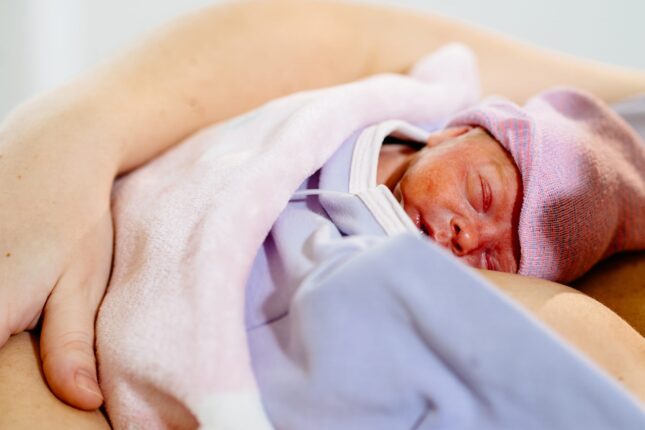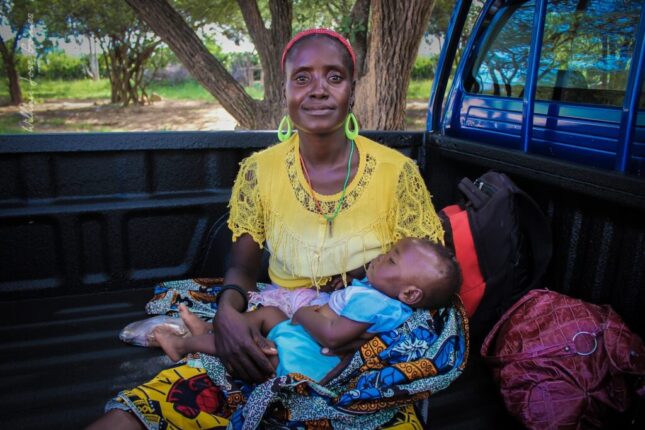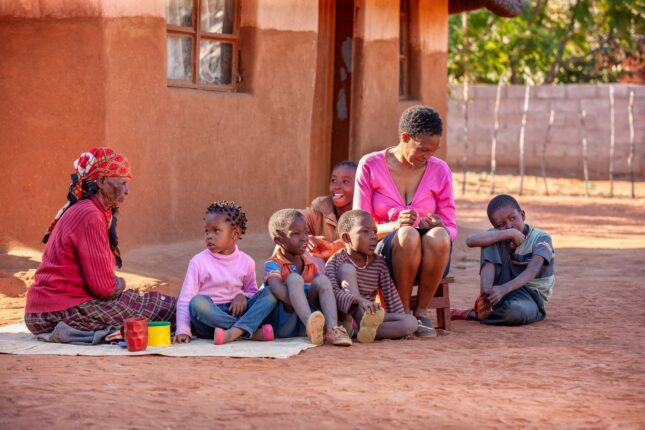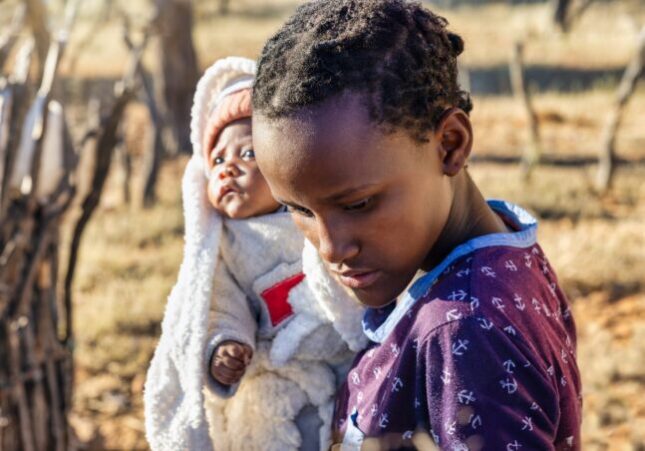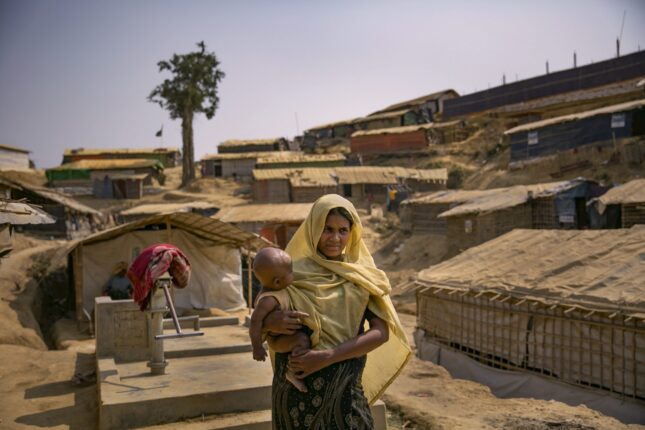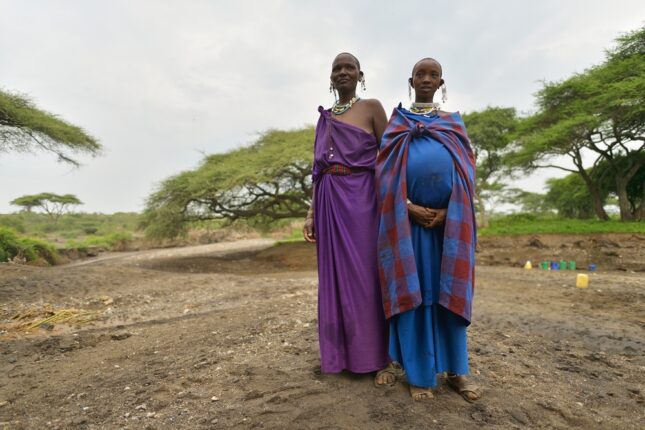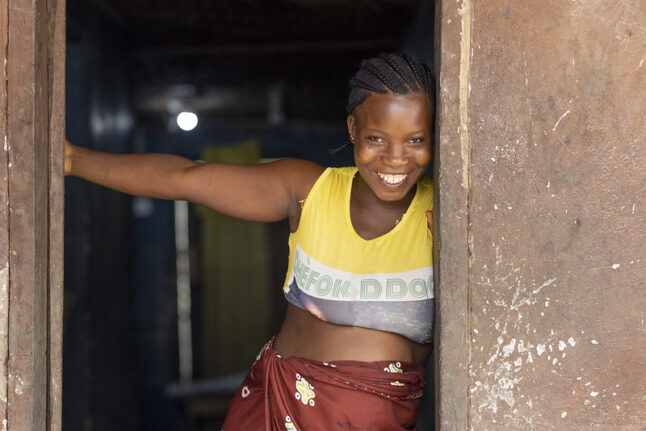-
2024 Dot-Mom Guest Contributor Highlights
›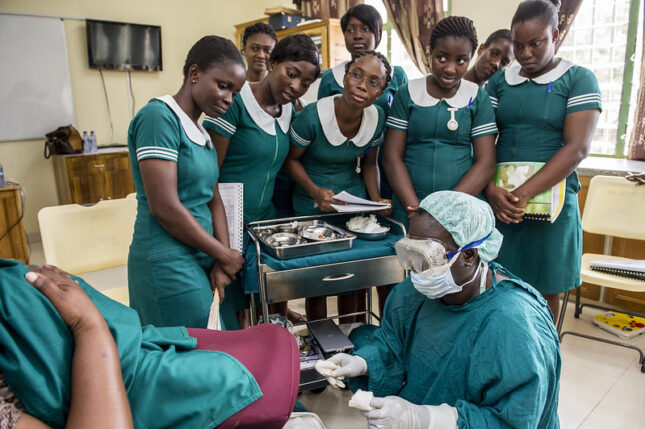
The Dot-Mom column of the Environmental Change and Security Program’s New Security Beat blog serves as a platform for diverse perspectives and insights from global experts in maternal and global health, gender equality, and peace and security. In 2024, the Dot-Mom column, hosted by the Wilson Center’s Maternal Health Initiative, was marked by an incredible number of guest contributor articles.
-
Kangaroo Mother Care: A Critical Role in Welcoming the Tiniest Lives
›
“When babies are born early, they actually are not prepared to be in an environment that’s below [the temperature] of the human body, and they have to start pulling calories to be able to keep their body temperature at 37 degrees Celsius,” said Dr. Ann Hansen, a neonatologist at the Neonatal Intensive Care Unit at Boston Children’s Hospital and Founder of the Global Newborn Solution during a recent event held in commemoration of World Prematurity Day. “To keep them in what we call a thermal neutral environment, they need to have an external heat source.”
-
Obstetric Violence in Sub-Saharan Africa: The Struggle for Dignified Maternal Care
›
In August 2013, Josephine Majani, a mother of three from Bungoma County in Kenya, endured a harrowing birth experience. Despite her repeated pleas for help during labor, the nurses in the hospital ignored her. She struggled to walk to the labor ward while in intense pain, but all of its beds were occupied. Majani was forced to give birth on the cold concrete floor. Subsequently, nurses there subjected her to verbal and physical abuse—even making her carry her placenta back to the labor ward.
-
Confronting Pronatalism is Essential for Reproductive Justice and Ecological Sustainability
›
Pronatalism, the push for women to have more children, has elbowed its way into prominence in public discourse. In the United States, cultural and institutional pressures on women to bear children are articulated in various ways, from negative portrayals of women who don’t consider having a child a viable choice for themselves, to a burgeoning Silicon Valley subculture that advocates having “tons of kids” to save the world, to policy proposals that would further restrict reproductive choice or limit the voting power of the childless. The stigmatization of people without children and the recent rise in contemporary pronatalism is a global phenomenon.
-
Essential and Overdue: Quality Care for Adolescent Mothers and First-Time Parents
›
Maternal health among adolescents in low- and middle-income countries (LMICs) remains a largely unexplored and frequently neglected area within the public health field. Adolescent birth rates remain disproportionately high in LMICs, accounting for approximately 97% of all adolescent births globally. The prevalence of child marriage, poverty, gender-based violence, and limited access to and utilization of contraceptive methods all contribute to this startling statistic.
-
As Humanitarian Crises Grow, So Do Risks for Women and Newborns
›Dot-Mom // November 13, 2024 // By Sarah B. Barnes, Dr. Claudia Donkor, Deborah Denis, Mushtaq Khan, Jihan Salad, Harriet Ruysen, Rondi Anderson & Hani Rukh-E-Qamar
During humanitarian emergencies, women and newborns face severe disparities and heightened vulnerabilities, increasing their risk of illness and death. Humanitarian crises—caused by conflict, climate-related disasters, or forced displacement—disrupt health systems, limit access to essential services, and increase the likelihood of preventable deaths. In 2023, 58% of global maternal deaths, 50% of newborn deaths, and 51% of stillbirths worldwide occurred in the 29 countries with a UN humanitarian response plan or regional response plan. In humanitarian emergencies, a lack of skilled health personnel, inadequate infrastructure, and shortages of essential medicines are common—resulting in limited access to both basic and emergency maternal and newborn care. A fight for humanitarian aid is also a challenge, as maternal and newborn health are often under-prioritized or neglected in humanitarian response.
-
Afro-Descendant Women and Girls Deserve Culturally Relevant Healthcare and Better Data
›
A recent study from the United Nations Population Fund (UNFPA) and its partners found that women and girls of African descent living in the Americas are up to three times more likely to die from preventable maternal death causes. So it is no surprise that UNFPA’s Executive Director of Programs, Diene Keita, is calling attention to this challenge.
-
NEW: Global Health and Gender Policy Brief: Drivers of Global Maternal Mortality
›
Each day, almost 800 women die from preventable causes related to pregnancy and childbirth. A maternal death occurs every two minutes. Maternal mortality is defined as the death of a woman from complications of pregnancy or childbirth that occur during the pregnancy or within 6 weeks after the pregnancy ends.*
Showing posts from category maternal health.


